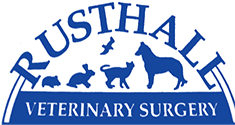Facilities at Rusthall Veterinary Surgery
Fully Stocked Pharmacy
Nutritional and Weight Assesment and Advice
Hospitalisation
Dental Treatment
It is not unusual for dogs and cats to need a general anaesthetic in order to have there teeth descaled and polished and any decaying teeth extracted. Rabbits can be very prone t dental problems as their teeth grow continuously and, as a consequence, may need regular dental treatment.
After pets have had their teeth cleaned, most owners will notice their pet happier, eating well once again and they should no longer have smelly breath!
Preventative Care and Treatment
Full Surgical Facilities
The main theatre is used for all of our surgical procedures providing a sterile environment for your pets during surgery.
All our equipment is cleaned and sterilised after use. During the anaesthetic the nurses use both their skill and equipment such as pulse oximeters and stethoscope to monitor the patience’s to ensure the safest outcome.
Autoclave
Diagnostic Tools
Otoscope: The otoscope has a light source and cones of different sizes to allow the vets to look into the ear and exam the ear canal and the eardrum.
Blood Pressure Monitoring: Just like in people, animals often suffer from abnormalities with their blood pressure due to different diseases. High blood pressure can damage different organs in the body including the brain so monitoring blood pressure is important. We have a doppler blood pressure measuring device that we use on all animals to get accurate readings.
X-ray: X-rays are routinely used in the diagnostics of many conditions. Here at Rusthall Veterinary Surgery we take and develop x-rays in house to allow us to get an immediate image.
Ultrasound: Ultrasound is a non invasive method of looking inside your pet to aid in diagnosis of disease or confirmation of pregnancy. Ultrasounds works by using high-frequency sound waves that reflects in various ways off the different tissues of the body. A probe is placed against the skin and used to transmit the sound waves and read the reflection. Although the procedure sounds relatively simple, this specialised equipment is expensive and skill and experience is required to interpret the results.
Ecg (electrocardiography): Leads are attached to the animal: these leads pick up the electrical impulses of the heart and allows the vets to look for any abnormalities with the heart rate or rhythm.
In-house Laboratory Equipment: Blood tests commonly either look at the chemicals carried around in the bloodstream or look at the blood cells themselves. The results of these tests tell us about the function of the organs (e.g. kidneys, liver) and the potential presence of infections.
We are equipped with an array of analysers to assess the biochemistry, blood gases, electrolytes, and hormonal assay and haematology analysers. Other equipment we use include tests for virus such as feline leukaemia and feline immunodeficiency virus, fungal tests, microscope to look for parasites from collected samples such as mange mites and lungworm. For more specialised laboratory tests we have same day courier collection.
